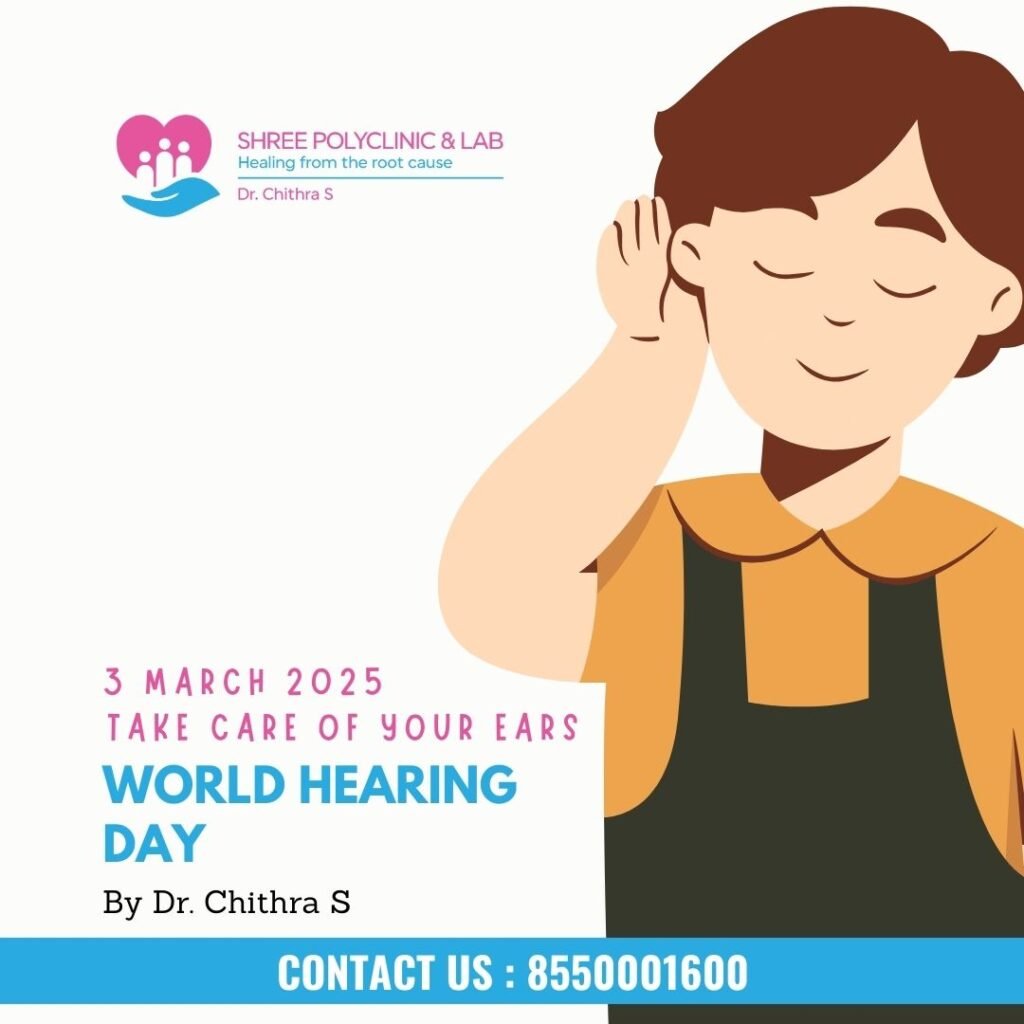Introduction
March 3rd marks World Hearing Day, a global initiative led by the World Health Organization (WHO) to raise awareness about hearing loss and promote ear and hearing care. Hearing loss can affect people of all ages, and early detection is key to preventing further complications. In this blog, we will explore the early signs of hearing loss and effective ways to prevent it.
Early Signs of Hearing Loss
Hearing loss can be gradual and may go unnoticed until it significantly affects daily life. Here are some early warning signs:
- Difficulty Understanding Conversations – Struggling to hear words, especially in noisy environments, is one of the first signs of hearing loss.
- Frequent Request to Repeat Words – If you often ask people to speak louder or repeat themselves, it may indicate hearing difficulties.
- Muffled or Distorted Sounds – Sounds may seem unclear or muffled, making it hard to distinguish certain words or phrases.
- Increasing the Volume – Frequently increasing the volume of the TV, radio, or phone beyond normal levels can be a red flag.
- Tinnitus (Ringing in the Ears) – A persistent ringing, buzzing, or hissing sound in the ears can be an early symptom of hearing damage.
- Trouble Hearing High-Pitched Sounds – Sounds like children’s voices, doorbells, or alarms may become difficult to hear.
- Social Withdrawal – Avoiding conversations or social gatherings due to difficulty in hearing may indicate progressive hearing loss.
- Feeling Tired After Conversations – Straining to listen and process sounds can cause fatigue and mental exhaustion.
How to Prevent Hearing Loss
Although some forms of hearing loss are age-related or genetic, many cases can be prevented with proper care. Here are some essential tips:
1. Protect Your Ears from Loud Noises
- Avoid exposure to loud noises above 85 decibels (dB), such as concerts, fireworks, or industrial machinery.
- Wear earplugs or noise-canceling headphones in noisy environments.
- Follow the 60/60 rule: Listen to music at no more than 60% volume for no more than 60 minutes at a time.
2. Maintain Good Ear Hygiene
- Avoid inserting cotton swabs or other objects into the ear canal, as they can push wax deeper and cause blockages.
- If experiencing earwax buildup, consult a doctor instead of using at-home removal tools.
3. Get Regular Hearing Checkups
- Adults should get their hearing tested at least once a year, especially after the age of 50.
- Children and those at risk (e.g., those working in noisy environments) should have regular hearing assessments.
4. Manage Chronic Health Conditions
- Conditions such as diabetes, high blood pressure, and cardiovascular diseases can impact hearing health.
- Maintain a balanced diet and an active lifestyle to support overall well-being, including ear health.
5. Avoid Ototoxic Medications
- Some medications, including certain antibiotics and pain relievers, can damage hearing. Always consult your doctor about potential side effects.
6. Quit Smoking and Reduce Alcohol Consumption
- Smoking and excessive alcohol intake can restrict blood flow to the ears, increasing the risk of hearing damage.
Conclusion
Early detection and prevention play a crucial role in maintaining healthy hearing. If you or a loved one notice signs of hearing loss, consult an audiologist or healthcare professional for a proper assessment. On World Hearing Day 2025, let’s spread awareness about hearing health and take proactive steps to protect our ears.
Take care of your hearing today for a healthier tomorrow!
Would you like a hearing test or consultation? Contact Shree Polyclinic & Lab for expert advice on hearing health!

